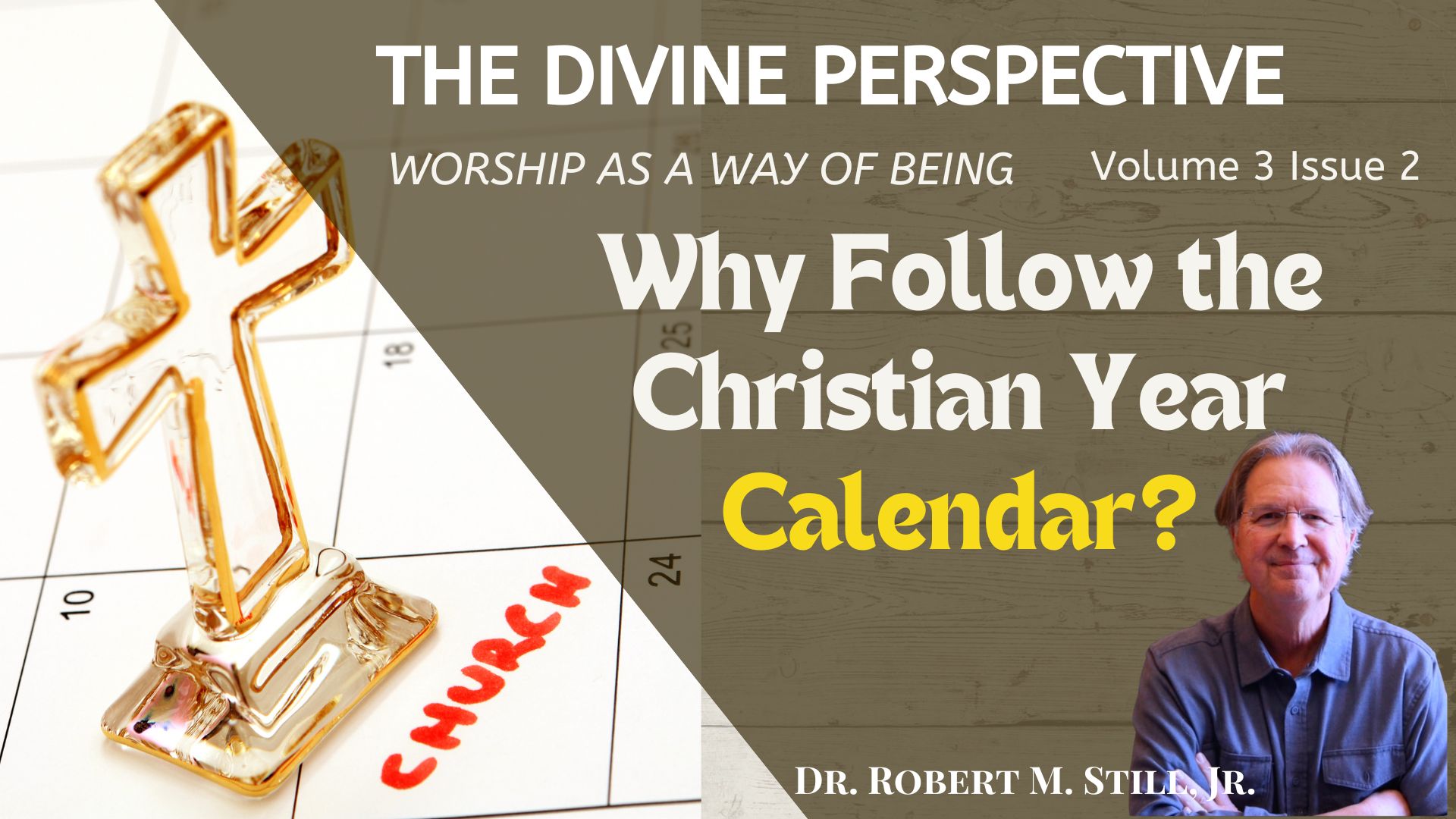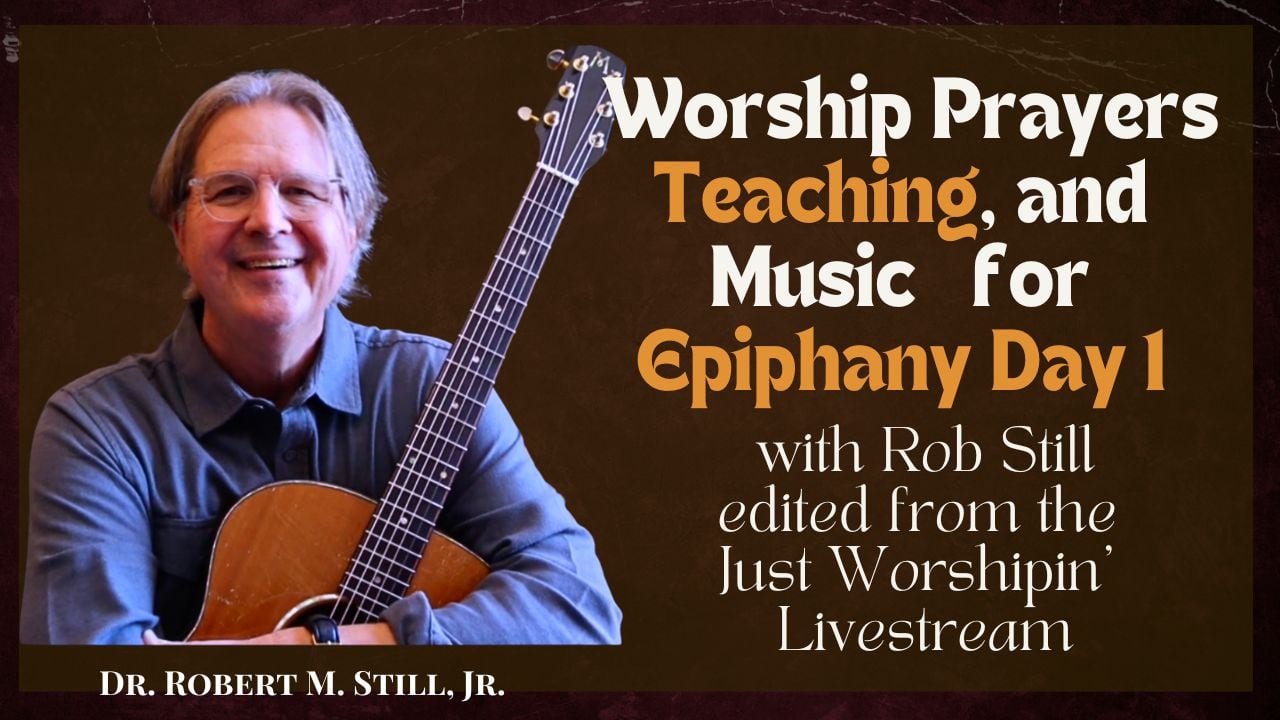Why Follow The Christian Year Calendar?

Introduction
Just as birthdays. anniversaries, and national holidays are important designations in the regular everyday life of diverse peoples and cultures, so too there are special days of commemoration that are important in the lives of Christians.
Part of my spiritual journey is that I grew up in a Christian denomination that did not observe special dates on the church calendar. Later in life, through my graduate studies at the Robert Webber Institute for Worship Studies and by participating immersively in the themes of the Christian year, I developed an appreciation for how – with the right mindset, these traditions can enrich and deepen our spiritual relationship with the Lord.
What is the Christian Year Calendar?
The Christian year calendar commemorates specific events designed to remember and retell the story of Christ, from His birth to His resurrection and return. This calendar evolved during the first centuries of Christianity. Historically, the Catholic and Episcopal/Anglican church adhere their worship practices closely to the calendar. Lutheran, Methodist, and some other Protestant/Evangelical traditions are more loose in observing the calendar. The Christian year calendar is extra-Biblical, that means, scripture does not explicitly require followers of Jesus Christ to live according it.
However, orienting one’s spiritual life around the seasons of the Christian Year can be beneficial and profoundly enriching.
The Christian year follows the timeline of Jesus’ life:
- Advent announces the arrival of Christ;
- Christmas celebrates his birth;
- Epiphany describes his revelation to the Gentiles;
- Lent portrays his journey toward suffering and death;
- Holy Week records the last days of Jesus’ earthly life;
- Easter celebrates his resurrection;
- Pentecost heralds the outpouring of the Holy Spirit and the birth of the Church.
The Christian year begins with Advent and concludes with Pentecost By paying attention to these rhythms, we set the course of our spiritual formation to be aligned with central narrative of the Christian faith.
A Biblical Basis for Worship around Calendar Events
Worship structured around dates on the calendar originates with God. In the Old Testament, God instituted cycles of worship such as the weekly Sabbath and annual feasts like Passover, Pentecost, and the Feast of Tabernacles (Numbers 28-29).
These festivals were designed for His people to reflect upon, remember, and renew their covenant with Him. God valued keeping these rituals (see Leviticus 23:4, Exodus 12:14, Deuteronomy 16:13–14).
Clearly, “God is into calendar.” [2] The Christian year perpetuates this principle, reminding us that God is “the same yesterday, today, and forever” (Hebrews 13:8). These ritual events are useful as:
• Memorials: Reminding us of God’s faithfulness
• Covenantal Signs: Demonstrating our relationship with God
• Prophetic Shadows: Pointing to God’s plan of redemption.
While some feasts were specific to the Old Covenant, their spiritual significance continues in the New Covenant, often reinterpreted through the lens of Christ’s life, death, and resurrection.
Five Reasons to Follow the Christian Year Calendar
1. The story of Christ is preeminent.
The Christian calendar keeps the storyline of Jesus’ life, ministry, death, and resurrection central to our worship. It ensures that our focus remains Christo-centric, allowing us to retell and pass on the story of God’s ongoing invitation to relationship.
2. Believers Recall Their Identity, Calling, and Destiny
Living in the rhythms of the Christian calendar helps us remember who we are in Christ. As Philip H. Pfatteicher notes, “We are in need of being reminded of who we are and who we are called to be: people on the Way” [3] The Christian year helps us do that.
3. Discipleship Through Spiritual Rhythms
When employed thoughtfully and spiritually, living through seasons like Lent or Advent is a powerful way to follow in Jesus’s footsteps. Engaging with these narratives with a sanctified imagination helps us cultivate more profound understanding, empathy, and transformation.
4. Connection to the Trans-Local and Global Church
Observing the Christian year calendar unites us with the local church community and Christians worldwide following these rhythms. Referencing a standard calendar is a practical means for churches to literally be “on the same page” and share a sense of purpose and unity.
5. Historical Continuity
The Christian year calendar connects us to the early Church and historical followers of Christ. We read what they read, pray what they prayed, sing what they sang, and share the story that has shaped the Christian faith for centuries.
Conclusion
The Christian year calendar is a powerful tool for spiritual formation, offering structure and focus to the Church’s worship. By paying attention to these sacred rhythms, we grow in understanding Jesus Christ’s identity and our role in God’s story. Through the calendar, we join with believers across time and space in becoming disciples of Jesus Christ.
So, why not begin today?
A Special Focus on Epiphany
As I write this, we are in the season of Epiphany. I invite you to explore these themes of revelation and light. The word “Epiphany” is derived from the Greek epiphania, meaning a “conspicuous appearing” or “manifestation.”
The day of Epiphany, January 6th, marks a transition in the Christian calendar.
Through Advent and Christmas, we celebrated the foretelling and incarnation of Emmanuel, God with Us. Now, in Epiphany, we enter the phase of His ministry—a call for us to reflect the light of Christ more fully in our lives.
This season, part of the incarnational cycle, commemorates the beginning of Christ’s ministry and lasts about 40 days until Ash Wednesday.
As I shared in my livestream devotional on January 6, God has a personal development plan for each of us: to become more like Jesus. The Christian calendar can serve as a map, providing markers to guide this journey.
To Go Deeper
For immersive encouragement, check out this livestream video Epiphany Day Prayer, Songs, and Reflections with Rob Still, January 6, 2025 on YouTube, where we sing, pray and worship along these themes: Watch here.
For my in-depth research paper Epiphany Spirituality: A Light To The Gentiles, visit my academic papers and other resources on my Academia.edu page.
Additionally, you can dive deeper into the spiritually transformative gifts of the Epiphany season with this series of articles from The Divine Perspective:
STAY CONNECTED: Sign up for The Divine Perspective, my newsletter that synergizes spirituality, theology, creativity, and personal development from an artist and academic who envisions worship as a way of being.
Thank you for subscribing!
Have a great day!

